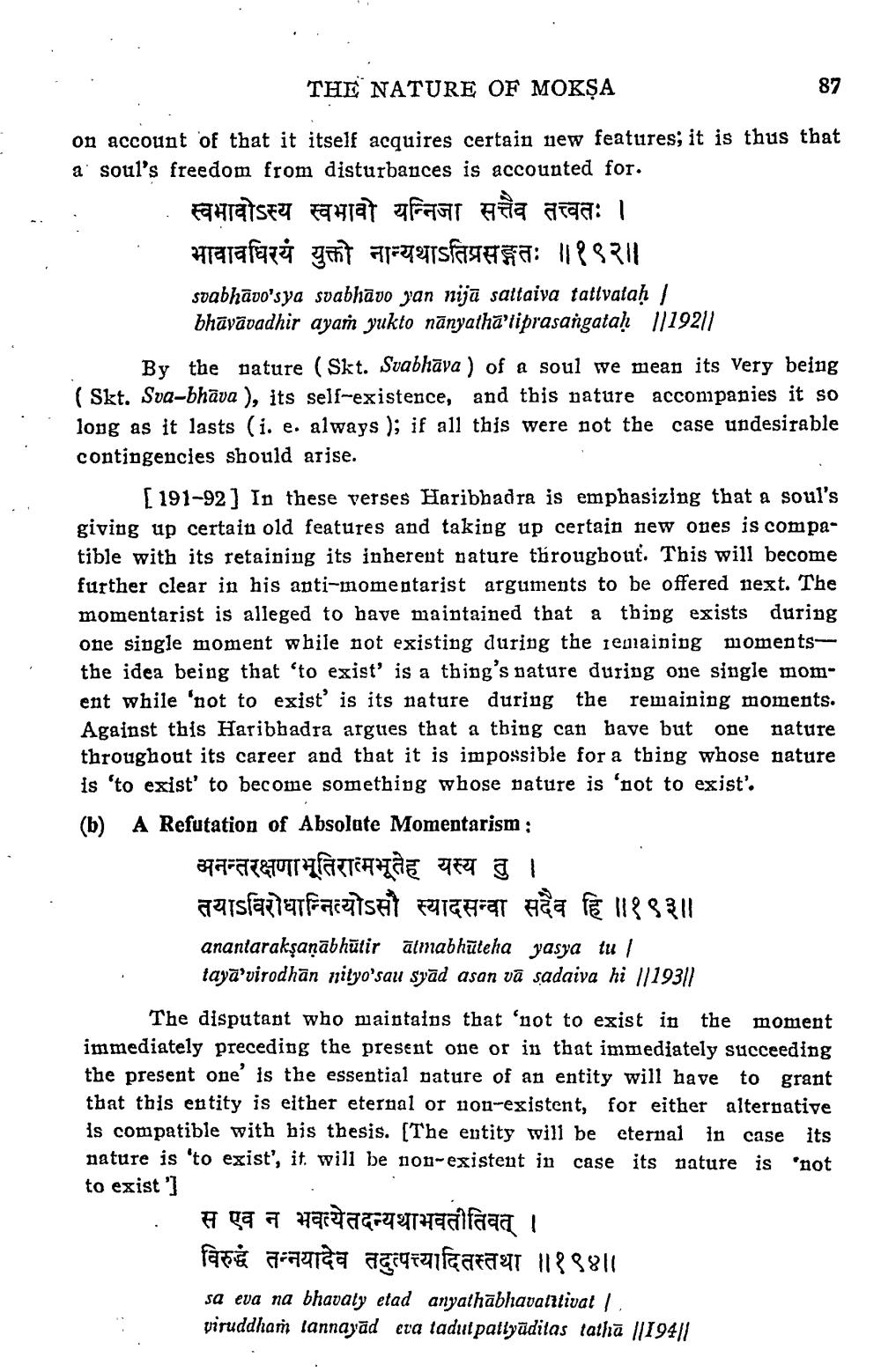________________
THE NATURE OF MOKŞA
XY
on account of that it itself acquires certain new features; it is thus that a' soul's freedom from disturbances is accounted for.
स्वभावोऽस्य स्वभावो यन्निजा सत्तैव तत्त्वतः । भावावधिरयं युक्तो नान्यथाऽतिप्रसङ्गतः ॥१९२।। svabhāvo'sya svabhavo yan nijā sattaiva tattvataḥ |
bhāvāvadhir ayam yukto nānyathā'tiprasangataḥ 1119211 By the nature (Skt. Svabhāva) of a soul we mean its very being (Skt. Sva-bhāva ), its self-existence, and this nature accompanies it so long as it lasts (i. e. always ); if all this were not the case undesirable contingencies should arise.
[191-92] In these verses Haribhadra is emphasizing that a soul's giving up certain old features and taking up certain new ones is compatible with its retaining its inherent nature throughout. This will become further clear in his anti-momentarist arguments to be offered next. The momentarist is alleged to have maintained that a thing exists during one single moment while not existing during the rearaining momentsthe idea being that 'to exist' is a thing's nature during one single moment while 'not to exist' is its nature during the remaining moments. Against this Haribhadra argues that a thing can bave but one nature throughout its career and that it is impossible for a thing whose nature is 'to exist' to become something whose nature is 'not to exist'. (b) A Refutation of Absolute Momentarism ;
अनन्तरक्षणाभूतिरात्मभूतेह यस्य तु । तयाऽविरोधान्नित्योऽसौ स्यादसन्वा सदैव हि ॥१९३॥ anantarakşaņābhūtir almabhūteha yasya tu / taya'virodhān nityo'sau syad asan va sadaiva hi 1119311
The disputant who maintains that not to exist in the moment immediately preceding the present one or in that immediately succeeding the present one is the essential nature of an entity will have to grant that this entity is either eternal or non-existent, for either alternative is compatible with his thesis. The entity will be eternal in case its nature is 'to exist', it will be non-existent in case its nature is not to exist 'l
स एव न भवत्येतदन्यथाभवतीतिवत् । विरुद्ध तन्नयादेव तदुत्पत्त्यादितस्तथा ॥१९४|| sa eva na bhavaty etad anyathābhavatitivat / piruddham lannayad era tadut patlyüditas tathā ||194||




